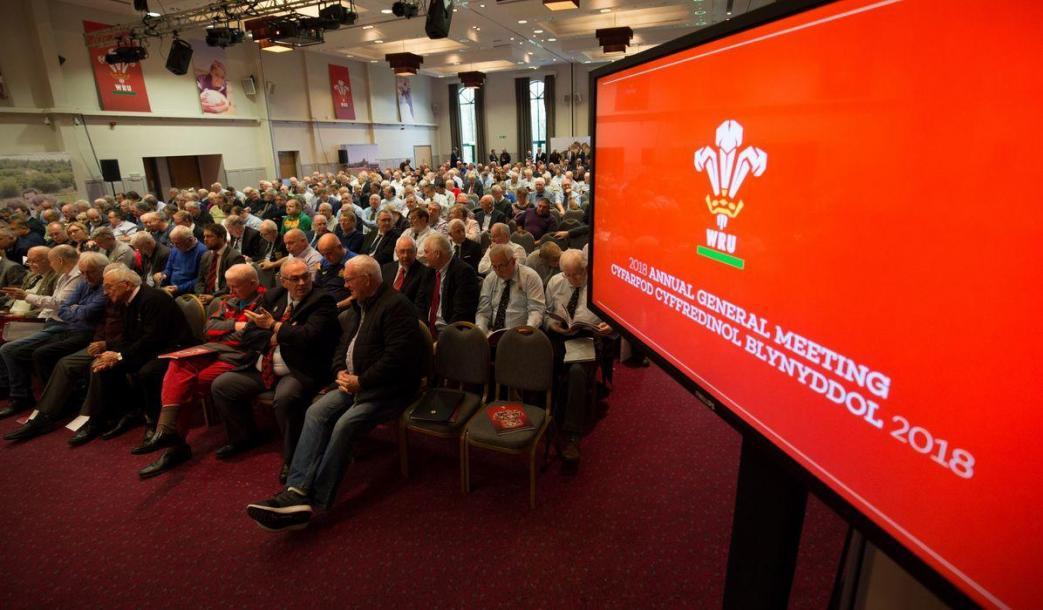Joint statement from PRB:
Welsh rugby’s new Professional Rugby Board (PRB) met this week to consolidate its working strategy for a sustainable and successful professional game in Wales.
The PRB has been meeting on a monthly basis over the last year and has operated as a sub-Board of the Welsh Rugby Union since a modernised governance structure for the WRU was passed by its members, clubs and districts at its Annual General Meeting in October 2018.
The January meeting took place against the backdrop of a newly agreed Professional Rugby Agreement (PRA) and, amongst a series of important agenda items, detailed the parameters for ensuring that agreement is binding.
“We have the details of a new PRA on the table and we are all in agreement and both resolute and determined to make it work,” said WRU chief executive Martyn Phillips.
“That means meeting a series of conditions which all parties have signed up to over the coming weeks and months.
“There are conditions which are clear lines in the sand, and will not be compromised, and must be met before the PRA can become fully active.
“For this reason we are not yet ready to publish further details of the agreement, but we remain fully committed to keeping the Welsh rugby family up to date on progress when appropriate.”
The PRB is a gathering of representatives from each of the five professional entities in Welsh rugby: the WRU, Scarlets, Ospreys, Cardiff Blues and Dragons, its members share equal responsibility for the professional game and have the power and authority to make dynamic changes wherever necessary.
Individuals at the January meeting, independently chaired by consultant David Lovett, included chief executive Martyn Phillips, finance director Steve Phillips and head of rugby operations Julie Paterson on behalf of the WRU, with the chairmen from each of the four Welsh regions Nigel Short, Mike James, Alun Jones and David Buttress also in attendance. WRU chairman Gareth Davies was also in attendance as an observer.
“The PRB’s most important and defining characteristic is that it is a Board which takes collective responsibility for the professional game,” added Phillips.
“We are five entities and we will determine what is best for Welsh rugby with long term objectives driven by pursuit of both success and sustainability.
“Nothing is off the table and we will be both bold and innovative in our thinking as we ask the fundamental questions about what is best for the future of our national game.
“We are all in this together and the mood in the room is very much one of excitement about the future and the progress and impact we know we will be able to make.
“The last 18 months have been both challenging and rewarding and the last few days in particular have been extremely productive.
“This is a dynamic group and we will not shy away from making difficult decisions. We recognise there will be tough choices ahead and there may be setbacks along the way but, as a group, we are determined to do what is necessary to set the game up for long term success.
“We are duty bound to provide the leadership our game deserves.”
The starting point of the PRA has been to accept that each constituent entity is different and therefore requires a different and bespoke approach in order to maximise success.
These parameters are already in place with opportunity and targets on the pitch matched to appropriate funding models for all parties.
A further degree of financial rigour has been introduced to ensure that expectations are both realistic and sustainable, but the ultimate aim is for all entities to be successful in the competitions within which they compete.
The PRB’s general approach is to ensure all five entities have equal opportunity for success and it is empowered by the access it now has to the commercial inventory of its constituent parts.
It is vitally important to note that, whilst the PRB now governs all commercial aspects of the professional game, the WRU Board has, for the first time in its history, moved to ring fence funding for the community game to also ensure clubs benefit from the certainty of sustainable income.
